If you are suffering from allergies whether it’s the seasonal or normal one.
Peppermint oil
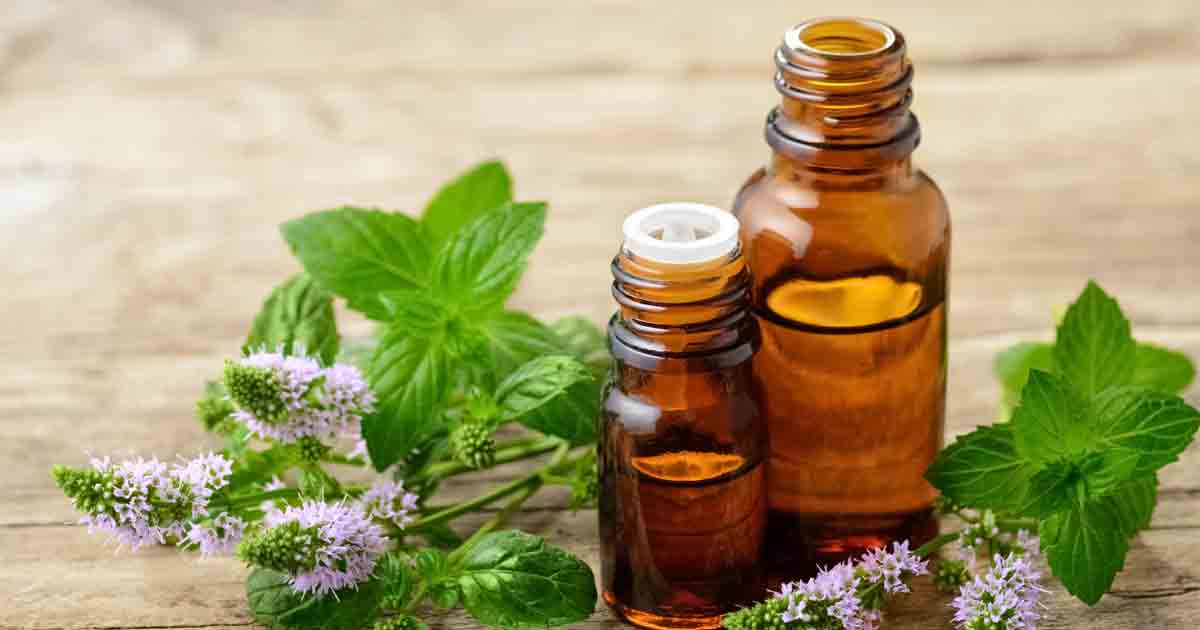
You know, peppermint oil contains menthol which has cooling properties and also has the ability, according to medical research, to open up the bronchial airways in the sinuses. And so if you’ve ever used peppermint oil you know it gives you that cooling sensation. You feel it in your mouth, your neck, even into your lungs and stomach sometimes, you notice that cooling and that opening effect of peppermint.
Now, something unique here just to know, peppermint contains menthol which has the cooling sensation and acts on your capillaries. Capsaicin, which is a compound found in hot pepper such as cayenne pepper, actually acts on nerve receptors the very same way that menthol does, only it gives you a warming sensation. Both of them actually have a lot of similarities.
But peppermint, again, one of the best ones for opening up your airwaves. And one of the things that a lot of times that’s taught in Chinese medicine is it’s actually good to actually to combine a cooling oil with a warming oil, so a cooling oil like peppermint and a warming oil like a black pepper oil or a cinnamon or a ginger oil, mixing those together actually can sometimes really help open up your sinuses. So you might consider making that type of blend.
Basil oil
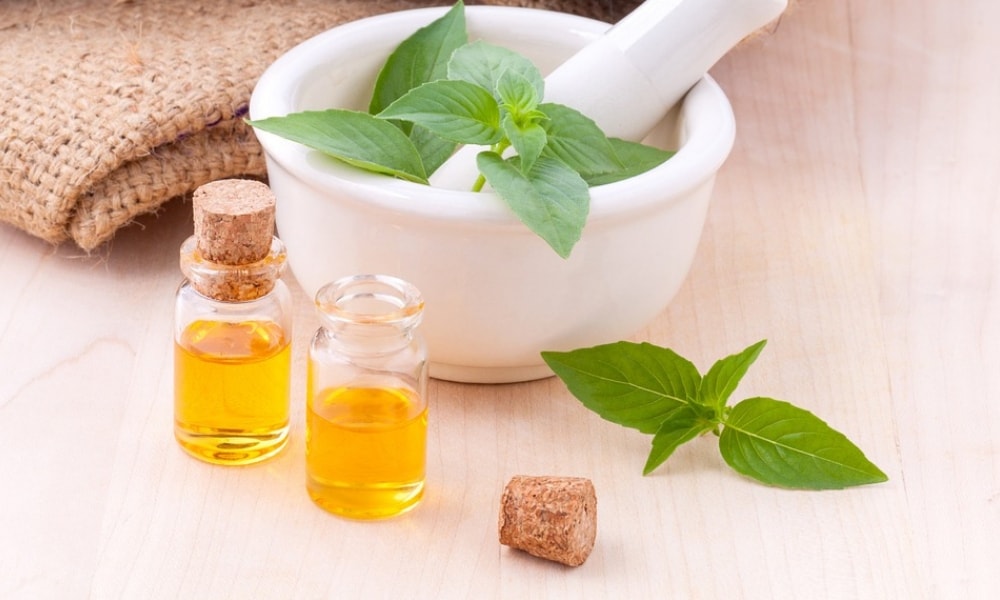
One of the most common ways it’s used today is for ear infections. People use basil oil. And listen, you never want to put the essential oil in your ear. You want to put it around the outside of the ear canal there and that upper part of the neck.
Both basil and holy basil oil in Chinese medicine are known to subside something called wind in the body. Now, wind in Chinese medicine is when your body is having too much movement, especially when you have those watery sinuses. Some of that can be a combination of cold and wind that has got in your system. What you want to do in Chinese medicine is you want to calm the wind, you want to warm your body as well oftentimes, and boost your immune system. And basil can actually calm that wind. It can be effective on the drippiness.
You can actually rub it on the outside of your nose and right on the bottom of your nose and your sinuses. So basil oil is really good for that allergy symptom of those drippy sinuses.
Eucalyptus oil
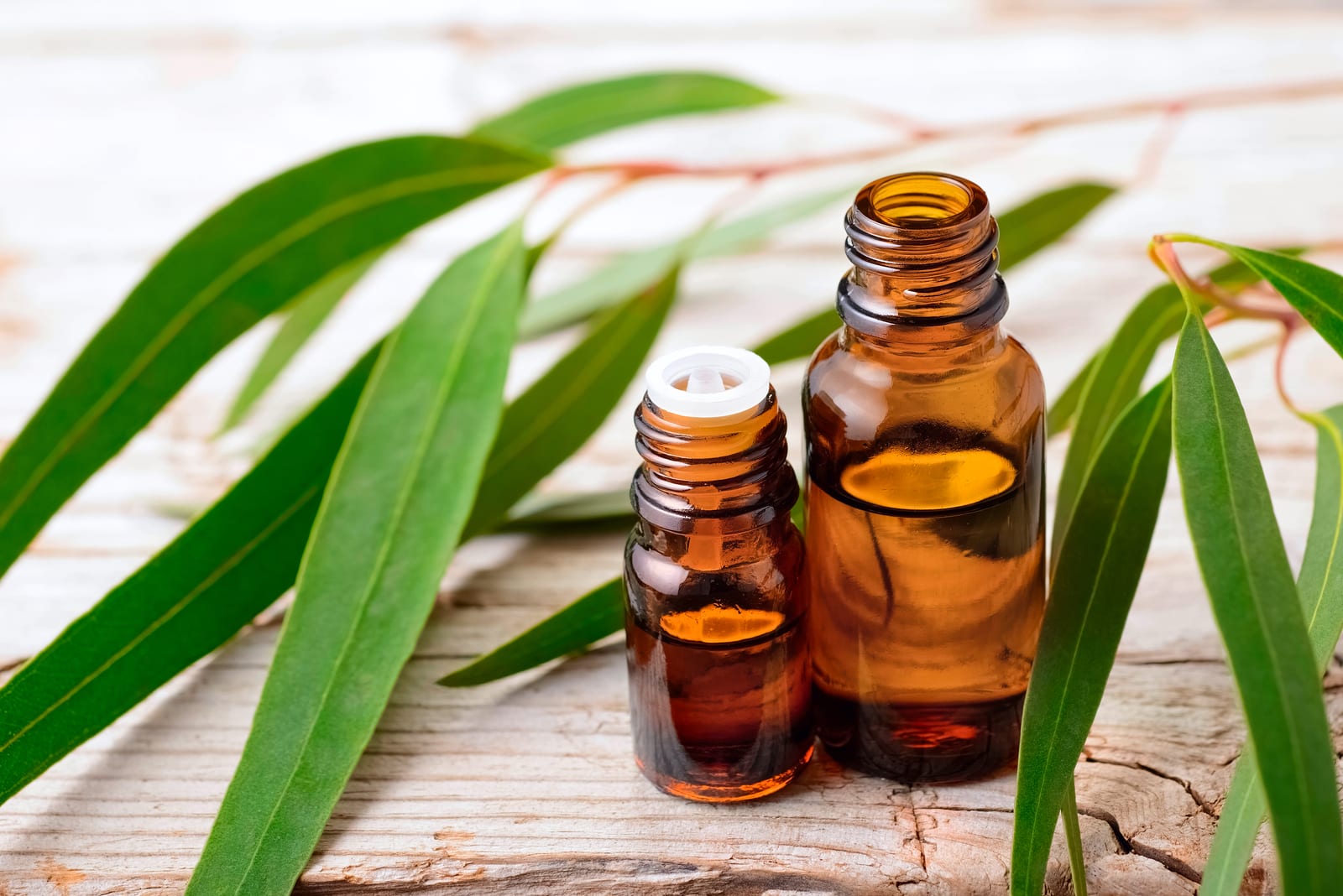
Now, eucalyptus oil is the king of opening up the respiratory airways. It also has some really powerful anti-microbial benefits at potentially fighting off different types of bacteria or viruses that may invade the lungs and the sinuses.
But eucalyptus oil has a lot of pretty powerful compounds, one of those being cineole which actually gives it many of its benefits.
But, again, when using basil, rub it there on the bottom of your nose, eucalyptus, good to rub on the lymph nodes, the front of your neck and your chest area, really helps open up those airways.
Lemon oil
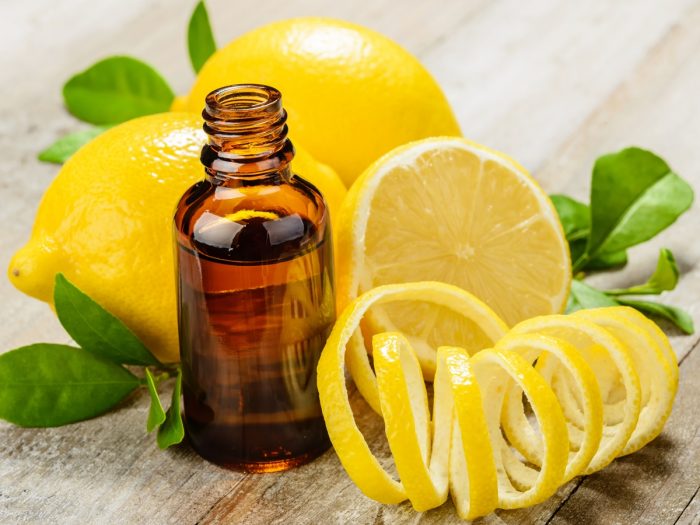
Now, lemon oil acts as an expectorant which means it actually helps your body get rid of excess phlegm. You know, one of the ways that lemon oil has been used for quite some time is for supporting lymphatic drainage and one of the things you’ll notice if you have allergies or a cold is these lymph nodes in this upper part of the neck that runs down as well, you tend to get those swollen lymph nodes.
Lemon oil may, in fact, help you drain those lymph nodes and also it helps thin out mucus. So if you tend to be very mucus-y as well and it’s starting to get thick in your nose and even up in your chest, lemon oil is a great thing to do.
What I love with lemon oil is I’ll tend to do just a few drops in like a hotter warm herbal tea, like a ginger tea with lemon oil is perfect for allergies. You can also add a couple of drops to Manuka honey and just sort of suck on that. But, again, lemon oil and ginger tea, a great natural way to help get some relief for those allergy symptoms.
Tea tree oil
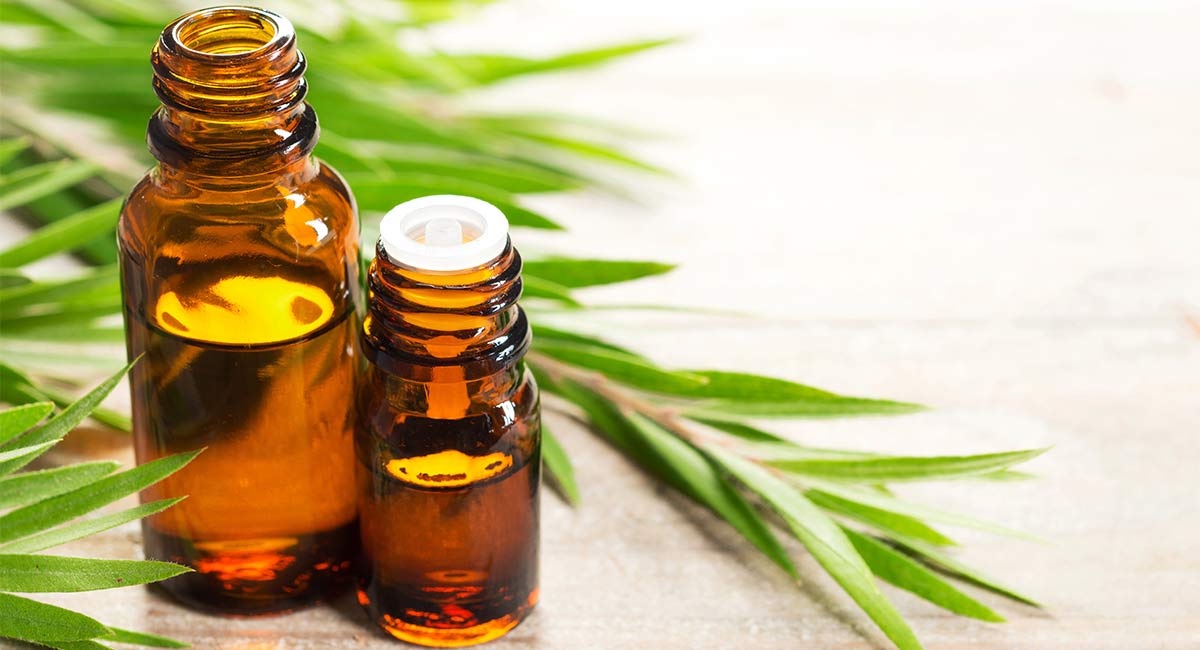
Now, tea tree oil is very high in different types of terpineol and terpenes and these oils tend to be gentle on the body, yet have really strong anti-microbial properties. So if you know you’ve been exposed to some sort of bug and that’s what causing your symptoms as well or contributing, tea tree oil is effective.
But the other big thing that a benefit about terpenes and tea tree oil is they tend to have anti-fungal and anti-mold properties. You know, a lot of times during certain times of the year when people have allergies, oftentimes there’s also mold in the air and if that’s the case, tea tree oil can be really effective to diffuse around your house. Now, I never recommend tea tree oil internally. You can definitely use it topically, but my favorite way to use this oil, again, is to diffuse it in the air throughout your home during allergy seasons, helps cleanse the air.
You can also use it for naturally cleaning your house down on stainless steel appliances, even on wood countertops, it’s a great thing to use.
Some Important References:
Essential Oils for Allergies – by – Healthline
Allergy to Essential Oils – by – Verywell
Top 7 essential oils for sinus congestion – by – MedicalNewsToday
SEASONAL THREATS: LAVENDER, LEMON, PEPPERMINT – by – Roseview
Top 5 Essential Oils & DIY Allergy Relief Home Remedies – by – EssentiallyYours



